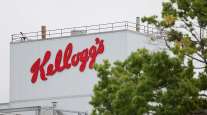Trucking Companies Continue to Report Weaker Results

Covenant Transportation Group, whose CEO David Parker used that adjective, reported net income fell more than 60% to $3.8 million, or 21 cents per share, in part because a tax benefit increased prior-year earnings by $4.7 million. Celadon Group Inc. earnings fell 39% to $5.2 million, or 19 cents, in its fiscal third quarter.
Patriot Transportation Holding posted net income of $863,000 or 26 cents per share for the fiscal second quarter of 2016, reversing a year-earlier loss of $351,000, as a result of a $2.1 million asset impairment charge.
Net income fell 92% to $300,000, or 1 cent per share, at Echo Global Logistics, where costs such as amortization, depreciation and stock compensation costs hurt results. Less-than-truckload operator Saia Inc. reported net income fell 16% to $10.6 million, or 42 cents per share, as shipments and tonnage declined.
At Covenant, No. 46 on Transport Topics' Top 100 list of the largest for-hire carriers in the U.S. and Canada, revenue fell 6.5% to $156.3 million, including fuel surcharge. Revenue per tractor per week declined less than 1%, reflecting a combination of 2.9% higher revenue per loaded mile and fewer miles run. Miles per tractor fell 1%, mainly because of the weaker freight environment.
“We remain cautious as the second-quarter freight environment has started slowly,” Parker said. “It may be several quarters until freight demand increases and trucking capacity subsides to a point where supply and demand are favorably balanced.”
“In this environment of soft freight and pricing pressure, we are continuing to focus on our customer relationships that can provide us with freight opportunities that will drive better equipment utilization,” said Paul Will, CEO at No. 42 Celadon.
Revenue rose 12% at Celadon to $259.6 million partly because acquisitions contributed to an increase of about 20% in seated trucks compared with the prior period. Like Covenant, revenue per tractor per week declined, even though revenue per loaded mile increased.
Patriot’s revenue fell 2% to $29 million, hurt by a $2.1 million drop in fuel surcharge collections.
Unlike other companies, Patriot’s statement said that demand began to increase during the second quarter, leading to optimism that volume will continue to grow in the summer.
No. 26 Saia’s revenue fell 1.1% to $290 million, buoyed by average rate increases of 5.3% on contracts, CEO Rick O’Dell said. Revenue per 100 pounds of freight rose 2.1%, including fuel surcharge collections.
“While we were not able to match last year's record first-quarter earnings results, I am pleased with the trajectory of our productivity and expense control initiatives,” he said in a statement. “We continue to see benefits in the areas of dock productivity and maintenance expenditures, while maintaining service and advancing quality initiatives. We also reduced purchased transportation expense.”
At Echo, revenue rose 43%, primarily because of transactional revenue tied to spot market activity. Net revenue, the amount left after paying for transportation, rose 52% to $80.8 million, and the net revenue margin improved to 19.9% from 18.8%. Echo is No. 35 on TT’s list of the Top 50 largest logistics companies in North America.
Excluding costs such as stock compensation, Echo said its profit rose 31%.




